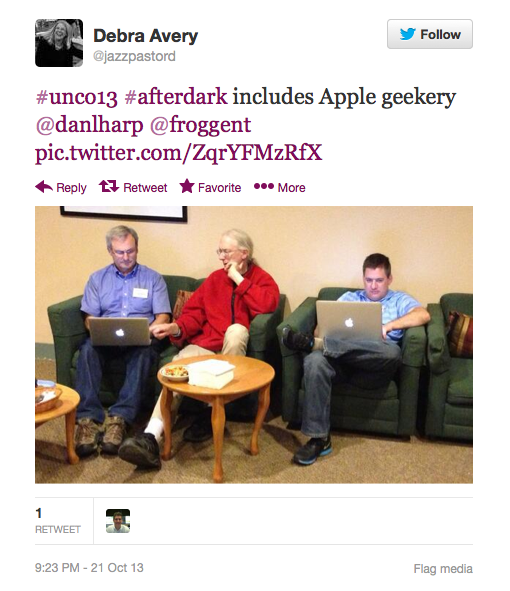I’ve been experimenting with producing books from blogs, using the Web-based service BlogBooker.
BlogBooker appears to have one or two bugs. First, while blog entries appear in chronological order, comments appear in reverse chronological order. Second, BlogBooker regularly inserts close quotation marks at the beginning of sentences. It does not handle blockquotes particularly well, leaving too much white space above them, and sometimes indenting the first line oddly.
BlogBooker is not perfect in other ways. While BlogBooker captures still images posted on a blog, it will not include the images associated with most embedded videos (e.g., YouTube videos). It inserts an ugly title page. As an option, it can list links in footnotes, which is useful, but it places the footnote at the beginning of the link, not at the end. If a blog post includes internal links within that page, BlogBooker lists those links like any other, which is not very useful. BlogBooker does not retain the italics and bold type of an original Web page, though it does retain strikethrough type. And it will only accept output from three blogging platforms: WordPress, Blogger, and LiveJournal.
One last feature that annoyed me: BlogBooker places static pages within the regular blog chronology. But I feel that static pages should not be included in the regular blog chronology. I chose to edit the dates of each page so that they would not be included in the date ranges which I used to generate the blog book.
Even though BlogBooker is not perfect, it does produce reasonably good output with some customization allowed. It uses LaTeX as its underlying publishing platform, which means the typesetting is attractive. It does offer a number of options: specified date ranges; 5 page sizes, including U.S. letter, A4, 6×9″, 7.5×9.25″, and B4; 6 type faces; and 4 font sizes (9, 10, 11, and 12 pt.). You can choose whether or not to include comments or post author. It will automatically generate a table of contents and number the pages. Layout options include two columns, and starting each entry on a new page.
Best of all, the service is free. You can give them a donation if you want, but it is not required.
Because BlogBooker provides a PDF file as output, it is easy to create a printed book using one of the online print-on-demand Web sites. As proof of concept, I used LuLu.com to generate a printed book in trade paperback (6×9″) size. I added my own title page, and generally spruced up the PDF generated by BlogBooker; this, and fiddling with the time-consuming LuLu.com service, took up quite a bit of time. I have not yet received the printed copy, but LuLu.com has always produced excellent printed materials from PDF files.
As for ebooks: The PDF file generated by BlogBooker can serve as a perfectly adequate ebook. You can also use LuLu.com or other online print-on-demand services to generate an ePub file from the PDF.
In summary, BlogBooker can generate a reasonably good PDF book from a blog. If you’re satisfied with their somewhat quirky formatting choices, you can easily generate a print book or ebook from your blog.


